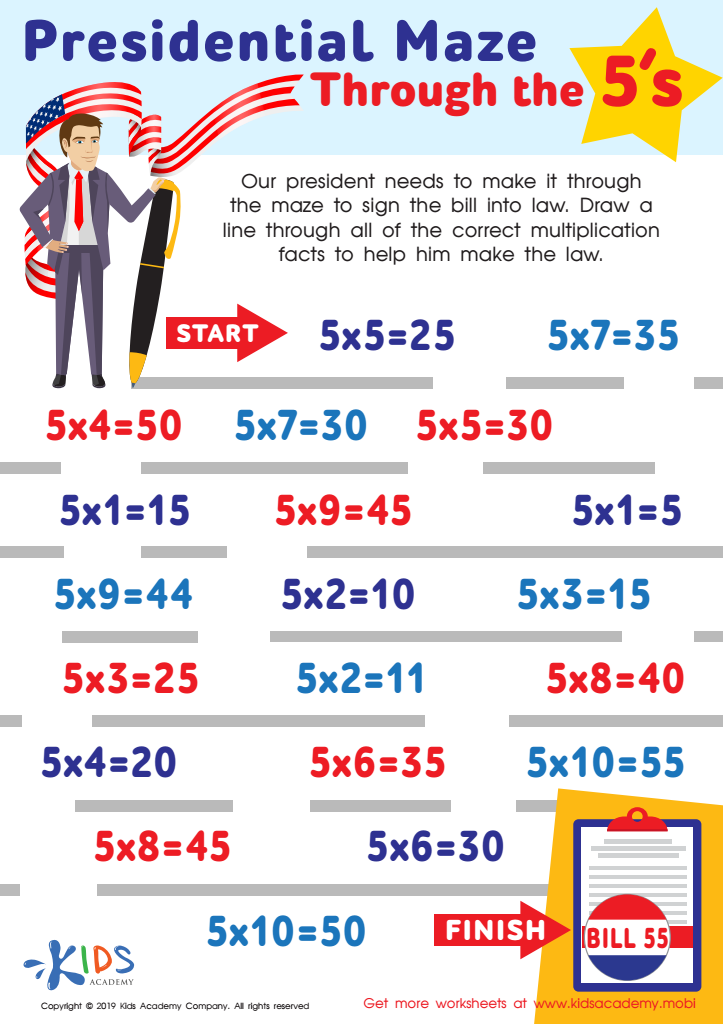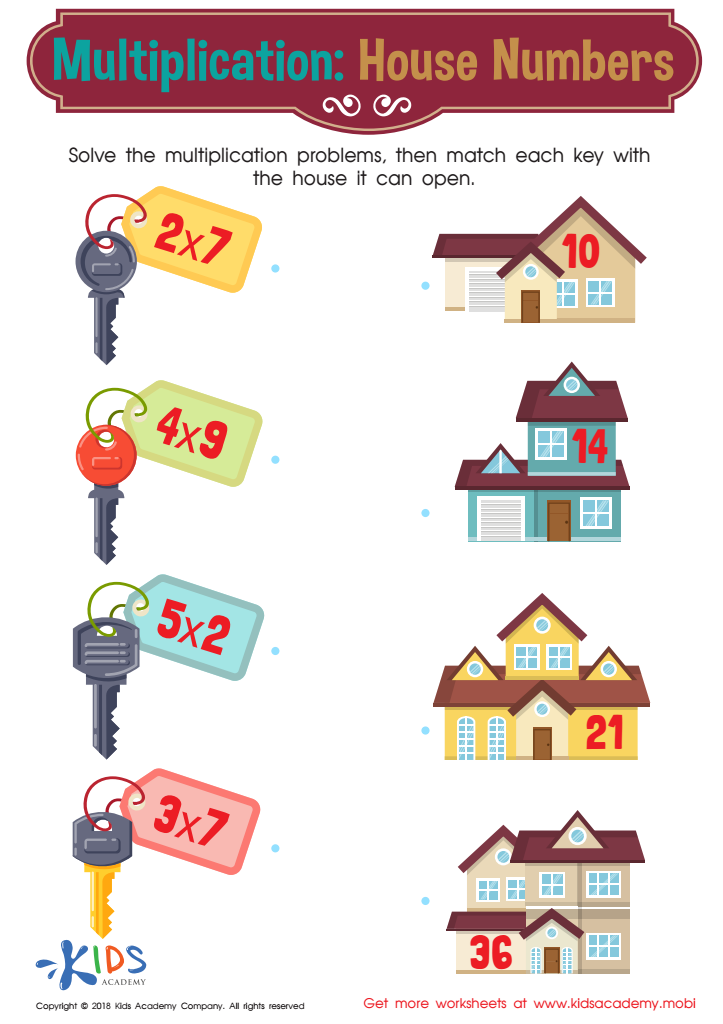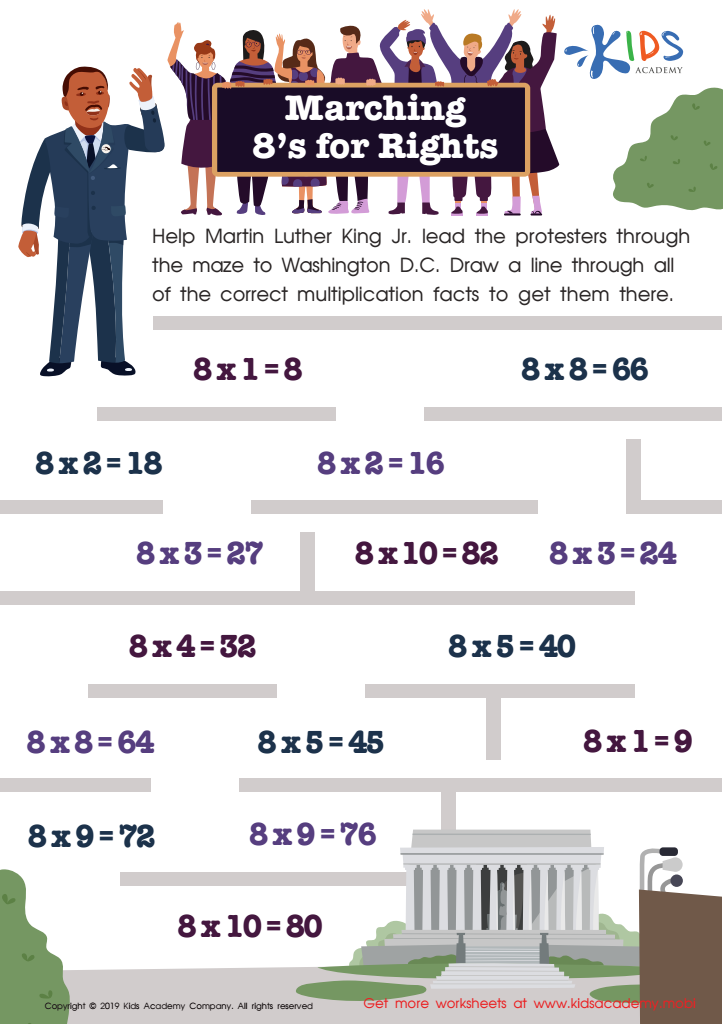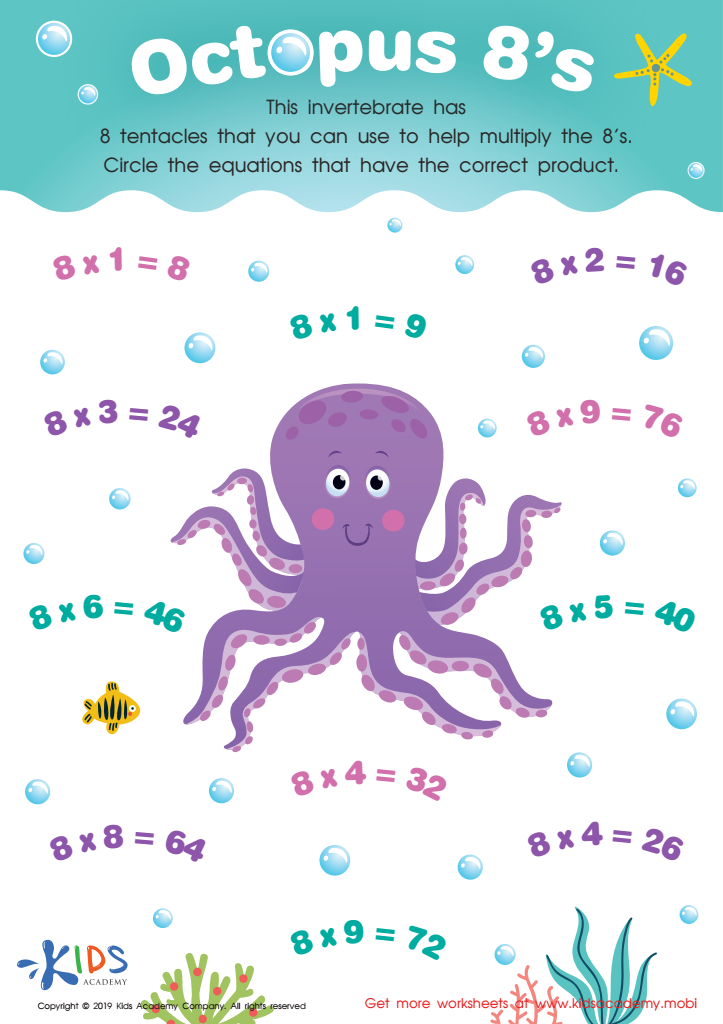Number Recognition Multiplication Worksheets for Ages 6-8
4 filtered results
-
From - To
Boost your child's math skills with our engaging Number Recognition Multiplication Worksheets designed for ages 6-8! These interactive worksheets help young learners recognize numbers while mastering basic multiplication concepts. Fun, colorful, and age-appropriate, they provide a perfect blend of entertainment and education. Your child will practice identifying numbers and applying them in multiplication exercises, enhancing both their number sense and arithmetic abilities. Parents and teachers alike will appreciate the ease of use and the clear, structured layout that promotes independent learning. Download our worksheets today to lay a solid math foundation and make learning multiplication enjoyable for your child!


Presidential Maze Through the 5’s Worksheet


House Numbers Worksheet


Marching 8’s for Rights Worksheet


Octopus 8’s Worksheet
Number recognition and multiplication skills are fundamental building blocks of mathematics for children aged 6 to 8. During these formative years, children begin to develop a deeper understanding of numbers and their relationships, essential for future mathematical concepts. Mastering number recognition helps students identify and understand digits, which provides a strong foundation for all math-related tasks.
Incorporating multiplication into their learning encourages critical thinking and problem-solving skills. When children can recognize and manipulate numbers, they become more confident in their abilities, spurring a positive attitude toward mathematics. Early exposure to multiplication not only enhances computational skills but also lays the groundwork for understanding more complex mathematical concepts like division, fractions, and algebra later on.
Moreover, engaging parents in supporting these skills at home fosters a collaborative learning environment. This partnership boosts children’s competence in math, making them more prepared for standardized tests, which are increasingly prolific in later grades. Encouraging number recognition and multiplication at this age ensures students are not just memorizing facts, but comprehending the ‘why’ and ‘how’ behind math, promoting a lifelong love for learning. Ultimately, these skills will aid in fostering a well-rounded education and critical thinking capabilities.
 Assign to My Students
Assign to My Students
















